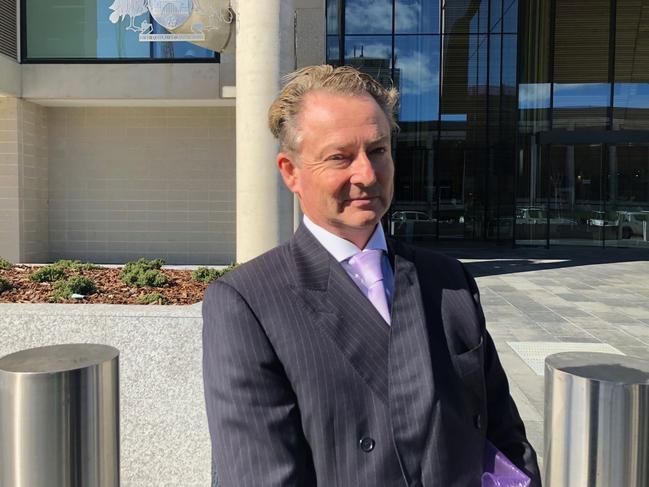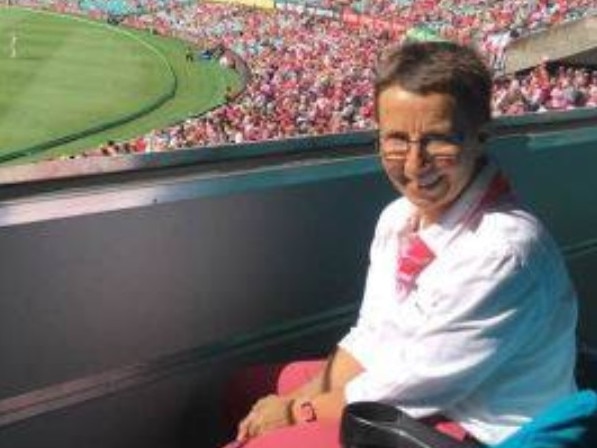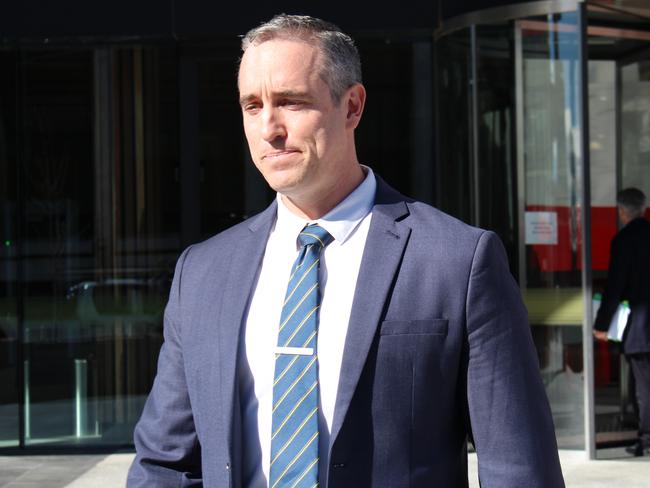Court hears police cars defective over crash killing Amanda Beehag
The police car involved in a crash which killed Canberra woman Amanda Beehag had three bald tyres and worn brakes, a court heard
- $144m cocaine haul bound for snowfields
- Ricky Stuart profile
- AFP officer charged with 22 sex offences
- Green light for Dickson Coles
The only two cars available to a Canberra police officer responding to a priority one incident — which led to the death of a woman — were both defective, a court has heard.
An emotional Lachlan Chancellor took the stand during a sentencing hearing on Tuesday after earlier pleading guilty to negligent driving causing death over a crash that killed Amanda Beehag at Kaleen on May 4, 2018.
The court also heard from Ms Beehag’s brother, Richard, who called for lessons to be learnt so his sister’s death not “be in vain”.
Mr Chancellor told the court he was forced to return to Belconnen police station to swap cars after the transmission in the Holden Commodore he was driving to attend an earlier incident was “jerking around”.
He was satisfied by a “visual inspection” of the replacement Holden Commodore, which he used to respond to the priority one incident, relating to a suspicious person sneaking around a building site at Bruce.
On the way to that job, the court heard Mr Chancellor was travelling about 100km/h in a 60km/h zone when he ran a red light as he entered the intersection of Baldwin Dr and Maribyrnong Ave before T-boning Ms Beehag’s Hyundai Getz.
An inspection after the crash revealed the car Mr Chancellor had been driving had three bald tyres — that he admitted he would have been booked for if he had been a civilian — and worn brakes that needed replacing.

The 38-year-old told the court he believed his driving caused the collision but that he may have only hit the back of Ms Beehag’s car, resulting in a less serious crash, if the tyres had more “tread”.
Under questioning from defence lawyer Steven Whybrow, Mr Chancellor said the third car operating out of Belconnen station was responding to a family violence matter on the night of the crash.
“I had raised concerns with the quality of all three cars in the fleet … they weren’t in a good condition and the main reason for that was we didn’t have the staff numbers to go and get them serviced and repaired,” Mr Chancellor said.
“I’d raised with my supervisors that we needed new cars, that they’re getting old.”
At one stage the former detective acting sergeant said he had to shut down Belconnen police station due to a lack of staff.
Mr Chancellor said he had been writing up a brief about how much it would cost ACT Policing to improve its fleet of vehicles when he was suspended from duty over the crash.
He also told the court he did not believe that fateful call out justified the priority one status, and would not have attended if he had known it was related to a suspicious person.

Ms Beehag’s brother, Richard, read out a victim impact statement, in which he described the collision as “horrific” and had resulted in Ms Beehag never regaining consciousness from the impact.
“Along with obvious physical injuries, her spinal column was damaged to the point that her body and brain could not communicate,” he said.
“After five weeks in an induced coma, we received medical advice that there was no real chance of her gaining back any quality of life.
“I turned off her life support and after six and a half hours, she died.”
Mr Beehag said their family held “no ill feelings” towards Mr Chancellor.
“We do, however, wish to convey our despair, anguish and sorrow in losing a beloved daughter, sister, cousin and friend.
“As we can now only hold onto her memory, we expect that something be done and lessons be learnt from this event.

“Please do not let my sister’s death be in vain. Changes must be made to reduce the likelihood of this happening to any other person.
“It is not for the writer to advise what procedures and processes need to be in place to prevent such needless death in the future.
“I only hope that more informed persons than myself find solutions and enforce improved measures so that others do not find themselves in such tragic circumstances.”
Mr Chancellor’s voice cracked as he delivered a heartfelt apology to Mr Beehag in court.
“I don’t even know how to begin to apologise for this and the pain it’s caused you and your family,” he said.
“As a result of my actions as a police officer I will keep trying to make up for it and I know it’s a lifelong thing but I’m so terribly sorry.”
He said he’d resigned from the force because he didn’t want to be “a burden” to the community.

“I never imagined I would be involved in hurting someone let alone causing someone to pass as a police officer and I didn’t think the public would have faith in me coming back.”
Defence lawyer Steven Whybrow said Mr Chancellor accepted his driving, his decisions and error of judgment “cost Ms Beehag her life”.
“But it’s not irrelevant that he should never have been in a car like that,” he said.
“He should not have been put in a position of driving a vehicle in that condition under urgent driving conditions.”
Even a split second increase in braking time could have meant the difference between a fatal and non-fatal crash, he said.
“In my submission, no more than a good behaviour order is called for in the circumstances of this case taking into account that the offender has … lost his career and the community has lost the services of an otherwise exemplary officer who has served the community for ten years.
“We are talking about negligence, we’re not talking about recklessness. This is not a civilian who was on their mobile phone or not someone who ran a red light to get home to watch the football.”
He said Mr Chancellor had been trying to serve the public and concentrating on the task after receiving a rare priority one call.
IN OTHER NEWS
But crown prosecutor Rebecca Christensen described his negligence as “high level” and “multi-faceted”.
This included “excessive speeding”, a failure to use his siren while entering the intersection against a red traffic light while also using his GPS right before the crash.
Ms Christensen said his actions “fell well below” guidelines which required him to slow down and enter an intersection only when it is safe to do so.
“A failure to meet such standards has potential to erode community confidence in our police force,” she said.
She also tendered his driving record that included seven speeding infringements between 2014 and 2017.
She said Mr Chancellor had waited until the day his Supreme Court trial was due to start in March to enter a guilty plea for negligent driving causing death.
“Today was the first and only occasion that the defendant has offered an apology to family of Ms Beehag,” she said.
Justice David Mossop will sentence Mr Chancellor on Thursday.


